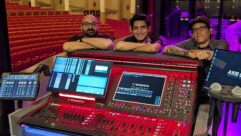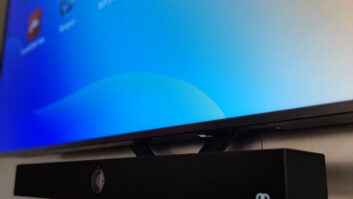Crossing Borders and Boundaries
Apr 1, 2003 12:00 PM,
MARK MAYFIELD
SOME 20 MONTHS AFTER 9/11, WHEN AMERICANS SLOW DOWN LONG enough to look around, they continue to see signs that their world has changed. Perhaps it’s more accurate to say that the world has not changed, but Americans’ relationship to it has. One of the few positive results of the tragic awakening of September 11 is that while globalization was a buzzword many years before, Americans are just now beginning to realize the full meaning of the term.
More and more U.S.-based companies in our industry are doing an increasing percentage of their business overseas. Offshore manufacturing during the past several years has grown to the point in which it’s hard to find a supplier that does the majority of its manufacturing in the United States. Many (if not most) product categories are no longer dominated by U.S.-based brands — quick, name one U.S. television manufacturer! Loudspeaker companies such as L-Acoustics, Nexo, Martin Audio, and Tannoy represent the growing visibility of non-U.S. brands in this important product category. Even if the final assembly is based in the United States, chances are the parts, components, and subsystems come from elsewhere around the world. As sound and video systems integrators develop relationships with customers whose business holdings include international operations, they find that a growing part of their business involves doing work in other countries.
This is a good thing. Of course, there are the hassles of international travel and time-zone complications, but overall it’s good to recognize that this is, in fact, one world (as one of the major airlines says). Americans can’t continue to exist as isolationists. The benefits far outweigh the costs. In certain market segments, market opportunities in other parts of the world are much greater than in the United States. The broadening of perspective is even more valuable — not only for our businesses but also for our roles as citizens of this earth.
This issue’s theme is “Going International.” You’ll read about some interesting installs in different countries, and you’ll hear from some of the people in our industry who have experienced the rewards and risks of doing business across borders. Even if your business is primarily domestic, if you’re lucky enough to establish a relationship with a large corporate client, you will eventually be faced with some of these same issues and challenges.
Another very important feature in this issue begins on p. 44. It is a timely report on a topic that could affect our industry in a significant and long-lasting way. In response to February’s fire-related tragedy at a nightclub in Rhode Island, we felt it was our responsibility to investigate the issue of the use of sound treatment products in commercial entertainment — or even industrial — applications. It is widely believed that the Rhode Island tragedy could have been averted if simple precautions were taken, including the use of the proper materials and professional installation by informed installers. Our hope is to raise awareness of the issues, the risks, and where you can go for the most detailed, qualified information.










